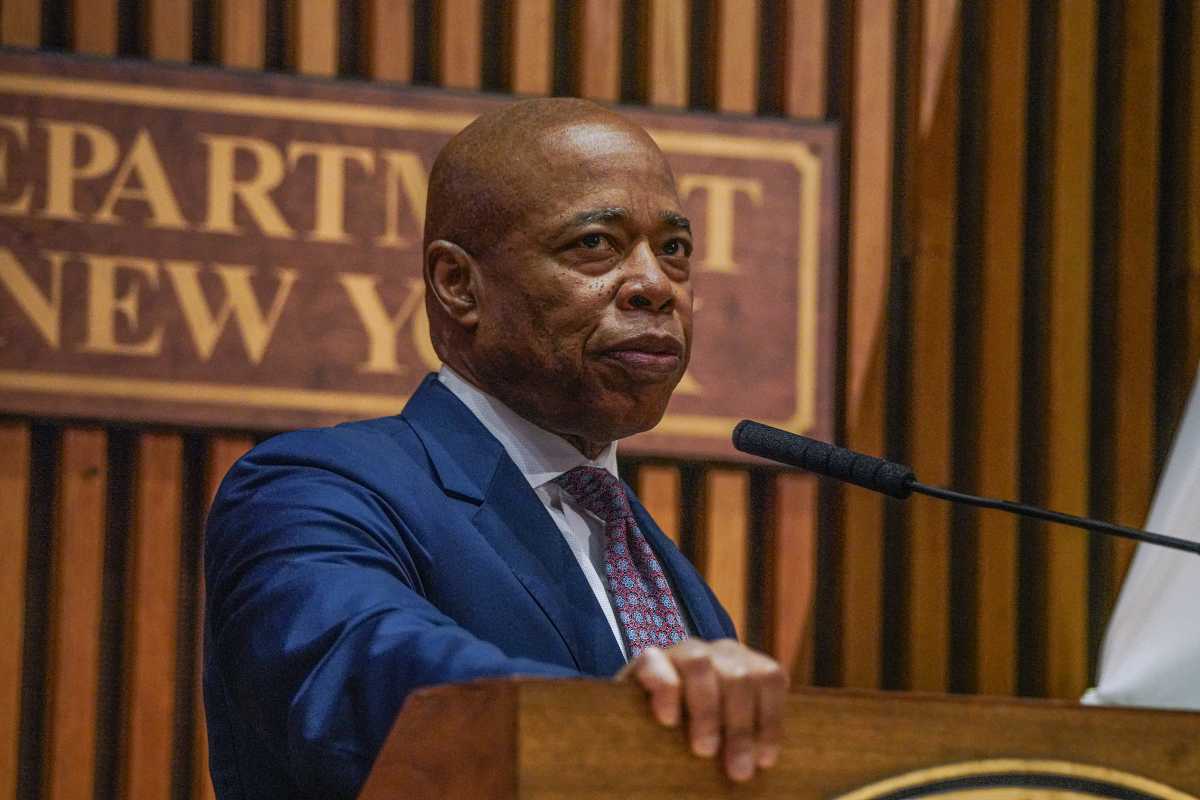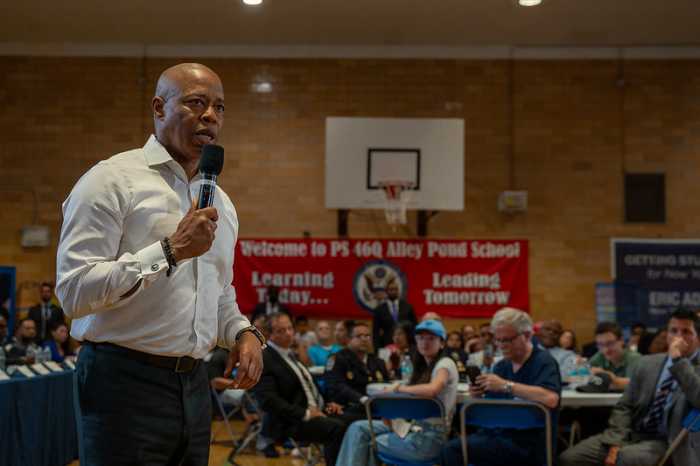POLITICAL NEWS Analysis
(AP) The sum of what the public knows about the biggest lobbying force in New York politics is a few pages of overall spending figures, generalities about purpose, and blocked-out names on a few state and federal documents.
But what the Committee to Save New York does, and who pays for its powerfully spun TV commercials to boost Gov. Andrew Cuomo, became a central question this week after The New York Times revealed gambling interests gave it $2 million as Cuomo prepared to expand casino gambling.
The committee was formed days after Cuomo won his seat in 2010 to combat similar organizations funded by public worker unions that fight budget cuts and tax caps.
Since then, good-government groups have worried it could act almost like the powerful super political action committees, known as super PACs, which are bludgeoning presidential politics with anonymous messages that resonate with voters by flash and repetition, regardless of veracity.
Last week, Cuomo made it clear the Committee to Save New York is even more powerful than a super PAC, which can’t legally coordinate with a candidate. Cuomo spokesman Richard Bamberger, however, said coordination between elected officials and lobbying groups that serve them “is wholly proper, common, and necessary.”
“In many ways,” said Bill Mahoney of the New York Public Interest Research Group, “this has probably been more valuable to his governorship and his platform than a traditional super PAC would have been.”
In Washington and New York, the rise of wealthy interests influencing the public, anonymously and without limits, turns post-Watergate reforms upside down. It also poses uncomfortable questions to Cuomo, who campaigned against a system that “amplifies the voices of wealthy individuals and special interests” and who, as a candidate, promised to “make state government the most transparent and accountable in history.”
The $10 million that’s been spent by the Committee to Save New York allowed Cuomo to avoid spending from his formidable $14 million campaign account, which would also require disclosure of donors.
In the past, the public worker unions, raising much smaller amounts, pummeled Governors George Pataki, Eliot Spitzer and David Paterson with TV campaign blitzes. Those governors not only lost to legislators banking on popular support for more school and health care spending, but were also left with dramatically reduced public support.
“From the inception of CSNY, we have focused on a reform agenda designed to help create jobs, improve New York’s economy and get state government working for the people again,” said Michael McKeon, spokesman for the Committee to Save New York.
The Malaysian gambling giant Genting, one of the interests that contributed to the $2 million donation to the Committee to Save New York, outlined to Cuomo its plan for a convention center and casino at a Cuomo fundraiser in October, according to The Wall Street Journal. That’s at least a breach of etiquette by most Albany politicians who try not to appear to be working a deal with one hand while receiving a check with another.
Three months later, Cuomo made that convention center plan a centerpiece of his State of the State speech.
The Committee to Save New York, considered a so-called 501(c)(4) nonprofit organization under law, pushed Cuomo’s cap on the growth in property taxes, his budget and other fiscal measures. More directly and publicly, Cuomo assembled a similar coalition of gay rights activists to focus message and funding to legalize gay marriage.
“Gov. Cuomo works with many c4s on their respective issues including marriage equality c4s, campaign finance reform c4s, and CSNY on economic issues,” Bamberger said last Friday, June 8. “The law on c4s allows large donations and, before Governor Cuomo’s reforms, there was no disclosure of these contributions. Beginning this year, thanks to Governor Cuomo’s law, there will be disclosure of donations to lobbying c4s.”
New York’s ethics and lobbying reform act proposed by Cuomo and passed by the Legislature last year was billed as a historic disclosure and enforcement act. But the Committee to Save New York has refused to voluntarily identify the donors who handed over more than $17 million to push Cuomo’s agenda and the state’s ethics watchdog, headed by a Cuomo appointee, is writing rules that could keep most or all of those names a secret forever.
“Why would we provide a grace period here?” said Susan Lerner of Common Cause-New York. “A vigorous democracy requires an informed citizenry.”


































